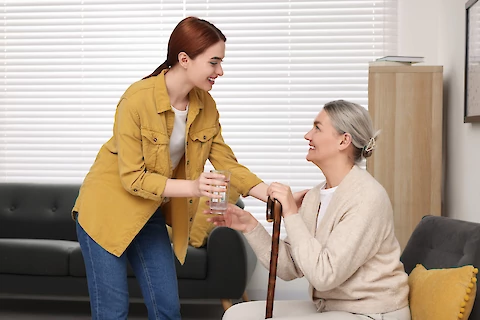
Hospice care focuses on making a patient's remaining time as comfortable and meaningful as possible. It's a specialized form of healthcare that offers relief from the symptoms and stress of a terminal illness. Hospice care can benefit anyone in the advanced stages of a disease where curative treatments may no longer be effective, or the patient has chosen comfort over cure.
These services extend beyond medical care. Hospice teams may include a variety of healthcare and lifestyle professionals:
- Primary and specialized doctors
- Nurses
- Physical therapists
- Family counselors
- Grief counselors
- Death doulas
- Clergy or spiritual guides
- Hospice volunteers
- In-home caregivers
- Respite care providers
The team works together to manage pain, alleviate symptoms, offer emotional support, and assist with spiritual needs, ensuring the patient and family feel supported during this challenging time.
Debunking Myths About Hospice Care
One common myth is that hospice care is synonymous with end-of-life. While it's true that hospice care is for those with life-limiting conditions, it doesn't mean that death is imminent. It's more about improving the quality of life in the patient's remaining days, weeks, or months.
Another misconception is that choosing hospice care means giving up hope. In reality, the focus of hope shifts from curing the illness to providing a peaceful and comfortable experience for the patient. Hospice care aims to ensure that patients can live their remaining days with dignity, comfort, and a high quality of life, fostering hope in a different sense.
The Benefits of Hospice Care
The benefits of hospice care are plentiful and touch on various aspects of a patient's life. From a physical perspective, hospice care professionals are experts at managing pain and other symptoms, ensuring patients stay as comfortable as possible. Besides physical relief, hospice care emotionally supports patients and their families. This can take many forms, from one-on-one counseling to support groups, aiding in navigating the emotional challenges that come with serious illness. Spiritual support is also an integral part of hospice care. Whether a patient is religious or not, addressing spiritual concerns and questions about mortality can provide immense relief during this time.
Ultimately, hospice care goes beyond patient care—it also offers respite care, counseling, and bereavement support for caregivers, helping them cope with their feelings of grief and loss.
Senior Helpers Is Here for Your Family
Hospice care is more than end-of-life care—it's about comfort, dignity, and quality of life. By debunking the myths surrounding hospice care, we hope to offer family caregivers the clarity they need to make informed decisions for their senior loved ones.
We also offer support in the form of in-home services, from personal care to light housework and meal preparation.
If your loved one is in Livermore, Pleasanton, Hayward, or anywhere in Alameda County, Senior Helpers Pleasanton is a valuable asset to any respite or hospice care team. Contact us today, and let us assist you in navigating this journey with compassion, understanding, and expertise.